Hollywood is the ‘Dune’ killer Part II
*In part II I will explore how to go about creating a solid adaptation
While it’s important to acknowledge that a fine work of literature deserves an equally appropriate movie adaptation, it’s another thing entirely to bring the idea to fruition. You can envision a delicious chocolate cake all you want, but if you don’t have the right balance of ingredients you’re likely to end up with a dessert that looks like the Leaning Tower of Pisa. So just like any great recipe, Dune needs the precise elements to make a good film. I’ve broken it down to seven separate steps required for a quality Dune movie.
1. Director
Every ship needs a good captain, and I can’t think of anybody better to helm this vessel than Mr. Ridley Scott. Scott was originally slated to direct what eventually became David Lynch’s version of Dune in the early 80s, however due to family issues Scott had to back out of the director’s chair. I can only imagine what Ridley Scott what have done with this film. After all this is the director who gave audiences two of the most iconic science fiction films in history–Blade Runner and Alien. While some derided his return to science fiction with Prometheus, there’s no doubt Scott is still a top-notch director. With films like Gladiator and the severely underrated Kingdom of Heaven, Scott has proven he’s got the director chops to handle an expansive science fiction film like Dune. Thankfully, Scott I believe is still young and hale enough to undertake this challenge.
2. Quality Writing
This is a step essentially in two parts. Adapting a beloved novel into a full length feature film is an arduous task. With original material the stakes are high enough, but with an adaptation however, there is the added pressure of the public’s preconceived ideas about what the movie SHOULD be. Having said that, the first part involves picking the right screenwriter. Whichever screenwriter tackles Dune, they need to be cognizant of the audience’s expectations. Moreover, it would behoove the producers to hire a fan of the work, or at the very least a fan of the genre. Two candidates spring to mind. First is Michael Arndt, who just departed the Star Wars Episode VII project. He’s obviously familiar with science fiction and he’s written two spectacular films in Toy Story 3 and Little Miss Sunshine, the second of which he won an Academy Award for. My second suggestion might sound slightly unorthodox but I believe Darren Aronofsky could be perfect for this script. Dune can be a very dark, psychological, and character driven story. Who better to tackle Dune then the guy who wrote Requiem for a Dream?
The second part involves cutting exposition from the movie. Two of the worst things about the 1984 version of Dune were the tendency for characters to give long speeches explaining what was going on, and the voiceover of characters’ thoughts. Actor Jose Ferrer’s Emperor Shaddam IV gave one of the most labored speeches in the history of cinema at the beginning of Dune. His explanation to a guild navigator about his plans to pit House Harkonnen and House Atredies against each other was tedious and dull. A cardinal rule in writing is “show don’t tell.” The people behind 1984’s Dune completely disregarded this rule. Solid writing will nullify the need for thought voiceovers. Moreover, it will allow the political intrigue, the revenge plots, and the various social, religious, and economic aspects of the story to flow naturally.
3. Practical Effects
In the nearly three decades since CGI first made an appearance in 1985’s Young Sherlock Holmes, Computer Graphic Imagining has become a blessing AND a curse. On the one hand it has allowed filmmakers like Steven Spielberg to bring dinosaurs to life in Jurassic Park, or James Cameron to unveil whole new worlds in Avatar. Unfortunately, too many stuffed shirts in Hollywood think CGI is the end all be all to the science fiction, fantasy, and horror genres. The results are turdburgers like Abraham Lincoln: Vampire Hunter and The Mummy Returns. Although the 1984 version of Dune didn’t have the best special effects, it did contain some very good practical effects, particularly the suspensors that allowed Baron Harkonnen to stay afloat. I believe practical effects are vital to a successful Dune film. Now obviously the giant sandworms will be brought to life by CGI. However, that doesn’t mean the film needs CGI Fremen attacking Arrakeen at the end of the film. There’s no reason creatures like the Guild Navigators can’t be realized through practical effects rather than CGI. Practical effects can make the Dune universe come alive for the audience.
4. Shoot On Location
One of the things I admire most about The Lord of the Rings films is that Peter Jackson made it a priority to shoot on location whenever and wherever he could. I shudder at the thought of the world of Middle Earth being regulated to a complete green screen. What a loss that would have been for New Zealand and fans everywhere. The green screen phenomenon goes hand in glove with CGI. Yet I believe there is no substitute for shooting on location. Look at the enormous success ‘Game of Thrones’ has had shooting on location. Iceland, which serves as the locale for lands north of The Wall, is simply breathtaking in its beauty. Or even look at the original Star Wars or Raiders of the Lost Ark. Both shot on location and both are two of the most successful films of all time. Frank Herbert’s text describes four distinct worlds–Arrakis, Giedi Prime, Caladan, and Kaitain. With the exception of perhaps Giedi Prime, which is mostly industrial, the other three are doable when it comes to location. Shooting on location lends an authenticity that green screen simply can’t provide. If the producers of this film aren’t willing to at the very least shoot the Arrakis scenes in the desert, they might as well pack it up and go home.
5. Split the film into two parts.
While the novel itself is only about 400 pages, Frank Herbert’s book is so intricate, with so many layers, that I believe it warrants at least two films. Although some may question the necessity of splitting the film up, this film is not a children’s book like The Hobbit. It’s a work of fiction with plot lines that run the gamut of the human condition. Lynch was forced to cut a massive amount of the novel’s material out of the movie. The result was a cookie-cutter sci-fi action film. At least I had the privilege of seeing the rare “extended cut” of Dune on the SyFy channel. This allowed for a modicum of improvement. Trust me when I say that this movie needs the two film treatment.
6. Don’t Worry About Sequels!!!!!
For those of you not familiar with the Dune universe, the books are abundant. Frank Herbert wrote six novels before he died, and along with Kevin J. Anderson, his son Brian finished the cycle. They’ve even gone further and written several prequels. While Hollywood has milked the sequel cow for decades now, the heifers are really starting to propagate the field. (See poster above.) Furthermore, studios are now planning franchise sequels years in advance. I mean seriously, how can there already be release dates for The Amazing Spiderman 3 AND 4 when there aren’t even scripts yet and the second movie doesn’t drop until next May?
My point here is to make a Dune film without the expectation of turning it into a franchise. Let the audience decide if they want to see Dune Messiah, Children of Dune, or God Emperor of Dune made into films. I know this is a novel concept for movie studios to comprehend, but it’s something to consider. Have the film stand on its own merits and go from there.
7. Casting
Any epic fantasy or science fiction film (or any film really for that matter) worth its salt needs a quality cast. Not just a quality cast but a great cast, one that has solid chemistry and can fully immerse themselves in the roles. David Lynch’s 1984 version of Dune was found wanting in that regard. Aside from perhaps Kenneth McMillan as Baron Harkonnen and Francesca Annis as Lady Jessica, the characters were severely miscast. Sting as Feyd-Rautha? Sean Young as Chani? Dean Stockwell as Dr. Yueh? Ugghh. To be fair many of the actors’ characters were severely underdeveloped, but that doesn’t take away that the producers cast the wrong people for the part. So who exactly should play who? That’s precisely what I plan to explore in Hollywood is the ‘Dune’ Killer Part III. Stay tuned!

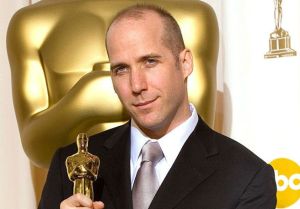
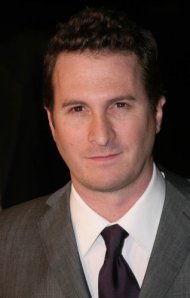


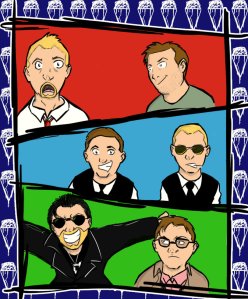
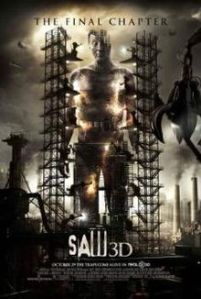
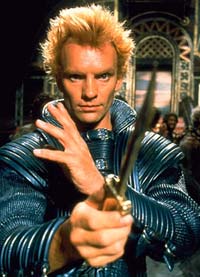

Love this analysis. What did you think of the Sci-Fi miniseries in and of itself — not as something meant to conjure the books?
LikeLike
I actually really liked the miniseries for what they were. Well acted, good cast, good pacing. I kind of liken it to Kubrick’s The Shining. In and of itself it’s a great film but as a Stephen King adaptation, eh thats another. Same thing applies with the miniseries. Personally I think the SyFy channel missed the boat not making Dune into a TV show.
LikeLike
The trouble with TV shows is that you have to wade through crap like Legend of the Seeker (Sword of Truth series) before you get something like Game of Thrones — which also took quite a few liberties because the storytelling medium is so different.
LikeLike
Agreed. Legend of the Seeker was God awful and pissed me off more because I love the Sword of Truth series. Thank God for GOT
LikeLike
Gosh, I haven’t thought of Dune in years. This really is a movie that could use a remake with better effects. And you are SO right about the annoying voice over. Blade Runner was a much better film without it, and I imagine Dune would be as well. People “get” science fiction now. We don’t need much exposition beyond perhaps a brief opening to set the scene (and maybe not even that).
LikeLike
I remember watching a bit of this movie and I have to say it was pretty unwatchable, I don’t know what it was, it was just unwatchable.
LikeLike
If you haven’t already, you should watch the documentary “Joborowsky’s Dune”.
LikeLike
Comes out on Dvd next month very interested
LikeLike